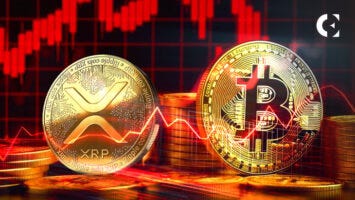What are they?
XRP is simply Ripples crypto coin (also known as token) developed in 2012 by Chris Larsen. The cryptocurrency and blockchain are designed to enhance global financial transfers and the exchange of several currencies.
Bitcoin is a cryptocurrency where transactions are recorded and verified on a public ledger called a blockchain introduced in 2008 by an anonymous developer using the name Satoshi Nakamoto. In other words, digital money.
How do they work?
XRP - The Ripple network processes transactions through the Ripple Protocol Consensus Algorithm, which validates transactions by having designated servers compare transaction records until they reach a supermajority agreement
Bitcoin (BTC) - Bitcoin is a form of money that lives on the Internet and is not issued by any state or government. It is believed to be a complete financial system that facilitates the new international digital money. This removes the need for trusted third-party involvement (i.e bank) in financial transactions.
What’s the difference between the two?
Currencies available
XRP has a total supply of 100 billion
Bitcoin has a total supply of 21 million.
Market Capitalisation
Bitcoin has a larger market capitalization and price than XRP because investors have decided it is more valuable.
Network Processing
XRP processes through the Ripple network for processing payments.
Bitcoin takes the mediator out of the transaction so you pay directly to the party using a cryptocurrency wallet due to it being decentralised.
Centralisation vs Decentralisation
XRP has Institutional partnerships with many financial institutions and payment providers which makes it easier to make payments.
Bitcoin's decentralization and economics foster a truly public recordkeeping of transactions and a predictable market that can't be corrupted by a central authority.
Which one should you invest into?
We looked at the overall landscape of XRP and Bitcoin but the question is which one should you invest into? We’ve added a couple pointers below to see which one is more suited for you:
Availability
XRP is Pre-mined and has a total supply of 100 billion tokens - which means more available tokens per capita.
Bitcoins need to be heavily mined and because 19/21 million already mined it means it can’t be scaled as heavily as XRP.
Costs
XRP is Cost-effective as its less energy-intensive due to it being premined.
Bitcoin requires huge data centres to keep afloat and maintain due to its reliance of mining which requires heavy processing power and electricity.
Transaction time
XRP has faster transaction times as if you need to make an immediate payment internationally with XRP you’re looking on average 3-5 seconds processing time.
Bitcoin on the other hand can take several minutes to hours to confirm, and its scalability has been a concern, leading to network congestion during high demand periods.
Low fees
XRP transaction fees are usually a fraction of a cent.
Bitcoin transactions incur small fees which are paid to the miners that confirm them.
Scalability
The Ripple network can process up to 1,500 transactions per second.
Bitcoin can handle up to 7 transactions per second as this limitation is largely due to the network's block size and time, which are designed to enhance security but at the expense of speed and scalability.
Conclusion
In conclusion, both XRP and Bitcoin have their own strengths and are suited to different purposes. XRP is faster, cheaper, and more scalable, making it great for quick and affordable international payments, especially for businesses. Its partnerships with financial institutions make it more centralized.
Bitcoin, on the other hand, is decentralized and viewed as a store of value, like digital gold. It’s more secure but slower and less efficient for everyday transactions. The choice between the two depends on your needs—whether you’re looking for a fast payment method or a long-term investment to preserve your wealth.
Check out our website for other articles: www.silvercrosscapital.com



